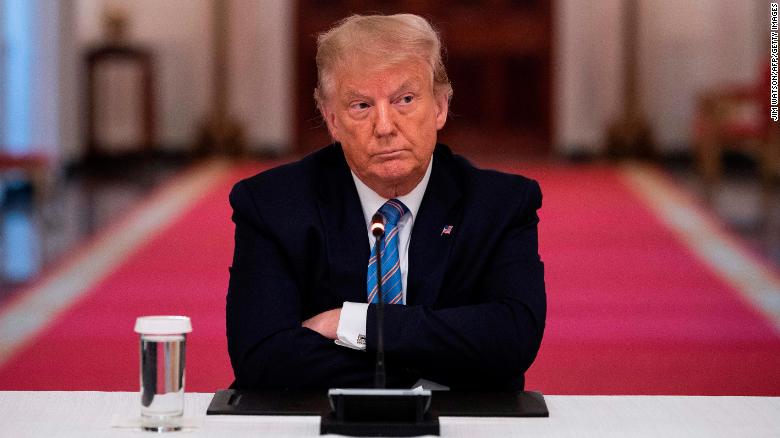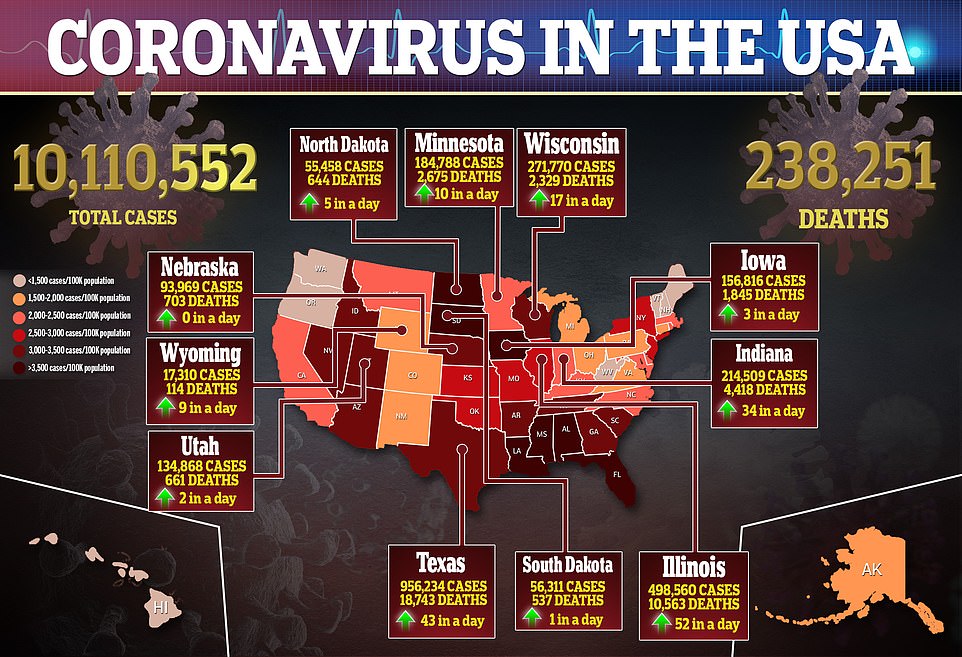President Trump’s refusal to give in to the fact that Joe Biden has won the election is likely to prolong the pandemic and put American lives at risk.
Days after the election results became clear, Trump has ordered his administration to block standard transition work designed to bring the incoming president’s team up to speed.
He’s done so, his aides say, because he is still waging legal battles across the country and refuses to concede he lost.
But the tangible impact could be massive.
Officials in the Trump administration working the COVID vaccine process, particularly those working on Operation Warp Speed, have been unable to communicate with Biden’s new COVID-19 task force about what plans they already have in place for distribution.
Without close coordination on those topics, current officials say, Biden’s team could face significant delays in getting the vaccine out to the American people.
“The vaccine distribution planning takes time,” said one senior health official. “And Operation Warp Speed has built up a huge database that is guiding their decisions about how best to roll out the vaccine. It’s essential Biden’s camp has access to this information so that when a vaccine does become available it can get out to the public quickly.”
According to two other senior officials, governors have for weeks been working with Operation Warp Speed—a public-private partnership aimed at accelerating the development of a vaccine—about drafting blueprints for state-wide distribution.
As part of those blueprints, governors are trying to decide how much funding they will have to use to create distribution plans that are as efficient as possible.
Each plan is different, officials said, particularly as it relates to states’ capacity to purchase and administer vaccines.
And, all of those plans are still being synchronized so as not to disrupt the federal government’s own vaccine distribution outlines for the military and frontline healthcare workers, officials said.
With officials still trying to finalize a cohesive, streamlined operation for who gets the vaccine first and when, there is ample need for the outgoing and incoming administrations to be on the same page. Instead, they’re not even talking.
“I don’t think there’s anything that the president-elect can do to get the current president to cooperate,” said Kathleen Sebelius, the former director for the Department of Health and Human Services. “But governors have all submitted a plan to this White House for their vaccination strategy. What those plans say, how similar they are, is still not transparent at all. I would hope that there would be some submission to the Biden team of those plans, so that there can be a strategy about who should be vaccinated first and in what order.”
According to multiple individuals familiar with the matter, Biden’s COVID-19 task force has made outreach to governors a top priority.
The goal, those sources said, is to create lines of communication with state and local leaders not only to assess what they need to fight the current wave of the coronavirus but also to ensure their constituents have access to a vaccine.
But because Biden’s task force has been cut out of the Trump administration’s conversations, and data gathering as it relates to the vaccine, its members will face additional hurdles in ensuring it has what it needs to roll out a nation-wide distribution campaign.
“There are a lot of questions to ask when it comes to a vaccine. How many healthcare workers do governors have? Where are the nursing homes in the state? How many healthcare workers are in those? All of those kinds of things will involve logistical issues about how to get vaccines to those parties,” Sebelius said.
Sources familiar with its planning said Biden’s task force is working on executive actions that the president-elect could implement upon entering office, including logistics orders that would essentially streamline mass production of vaccines and therapeutics.
Beyond laying the groundwork for a smooth, massive roll out of the vaccine, Biden will also have to ensure that Americans believe in the vaccine’s efficacy, health officials say.
For months, health officials have worried about whether a viable vaccine would be available this winter.
Over the last two weeks, however, it became clear that it likely would, with Pfizer’s vaccine candidate being the frontrunner.
Dr. Anthony Fauci, the director of the National Institute of Allergy and Infectious Diseases, said this week that the new Pfizer COVID-19 vaccine has 94 percent efficacy.
And he believes the unexpected success of the trail run will help combat some of the vaccine skepticism that exists among the public.
“My experience with vaccines… you have to be transparent with the process. Everything will ultimately be seen by any eyes who want to see it,” Fauci said. “But the incentive to take the vaccine increases dramatically with these numbers. The efficacy of this will get rid of some of the vaccine hesitancy.”
Biden is still likely to face significant pushback in his effort to build trust with communities, particularly in Republican counties that have for months dismissed guidance by the Centers for Disease Control that people wear masks, social distance and refrain from large group gatherings.
For example, in counties across Kansas, local officials have chosen to defy the governor’s orders and not implement mask mandates.
As a result, several of those areas are experiencing worrying outbreaks.
In Nemaha County, population 10,000, 200 people became infected with the virus in one week.
Experts fear that mask wearing and vaccine acceptance will be two areas where the incoming administration faces an uphill battle in turning public opinion.
“We did get some very encouraging news about preliminary results from the Pfizer vaccine, but translating that into a message that the vaccine is safe, effective, available and trusted is a much longer term process,” said Dr. Tom Frieden, former director for the Centers for Disease Control.
Trump’s refusal to concede the election will make the job harder, as hospitalization rates due to COVID hit an all time high.
In Wisconsin, health officials are seeing more average cases per day than during the peak of the virus in New York City, according to state data.
In North Dakota, the outbreak is so bad that hospitals are letting asymptomatic COVID-19 positive doctors and nurses treat coronavirus patients, Governor Doug Burgum said at a Monday press conference.
That same scenario played out in Manhattan during the surge of cases in the spring.
At the same time, the president has been so consumed with his legal battles in an attempt to retain power that he’s left the COVID-19 planning oversight up to Scott Atlas, a White House adviser who has butted heads with others on the task force while pushing the dangerous “herd immunity” theory to solving the pandemic.
Meanwhile, the Biden Team has launched a national effort to push the importance of masks and social distancing—two issues the president-elect’s advisers feel have still not been embraced by large swaths of the country, and both areas health experts say it’s vital that Biden’s messaging wins out.
“It’s a really difficult virus to fight. And if you’re not organized, you don’t fight effectively, you don’t communicate effectively and you don’t do things that are proven to work, it’s impossible,” Frieden said. “So I would hope that in the coming two months we see some improvement in management of the virus, because this is a really dangerous time. Unless we change our plans for Thanksgiving, we’re not going to have a very Merry Christmas.”

